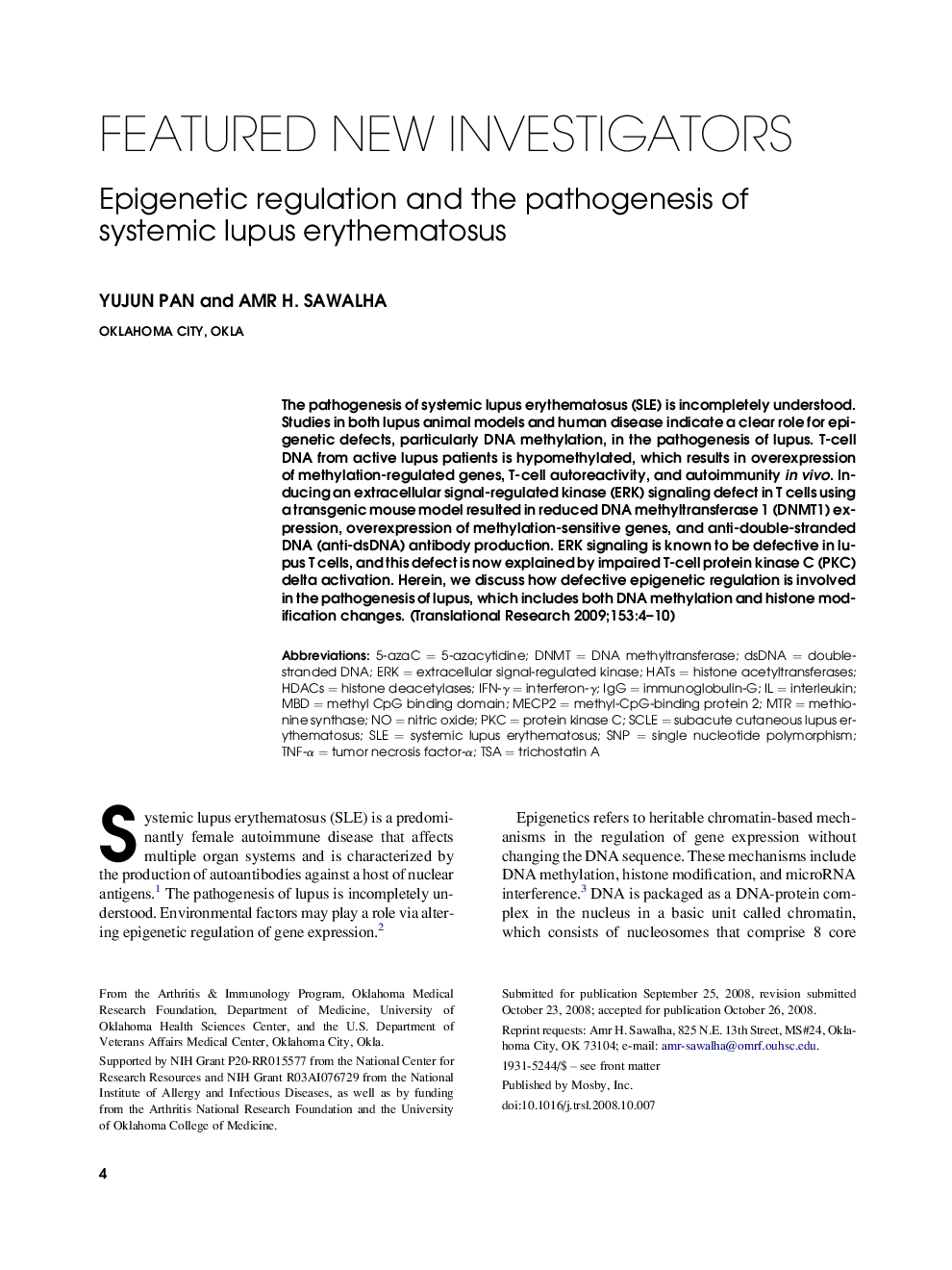| Article ID | Journal | Published Year | Pages | File Type |
|---|---|---|---|---|
| 3841171 | Translational Research | 2009 | 7 Pages |
The pathogenesis of systemic lupus erythematosus (SLE) is incompletely understood. Studies in both lupus animal models and human disease indicate a clear role for epigenetic defects, particularly DNA methylation, in the pathogenesis of lupus. T-cell DNA from active lupus patients is hypomethylated, which results in overexpression of methylation-regulated genes, T-cell autoreactivity, and autoimmunity in vivo. Inducing an extracellular signal-regulated kinase (ERK) signaling defect in T cells using a transgenic mouse model resulted in reduced DNA methyltransferase 1 (DNMT1) expression, overexpression of methylation-sensitive genes, and anti-double-stranded DNA (anti-dsDNA) antibody production. ERK signaling is known to be defective in lupus T cells, and this defect is now explained by impaired T-cell protein kinase C (PKC) delta activation. Herein, we discuss how defective epigenetic regulation is involved in the pathogenesis of lupus, which includes both DNA methylation and histone modification changes.
